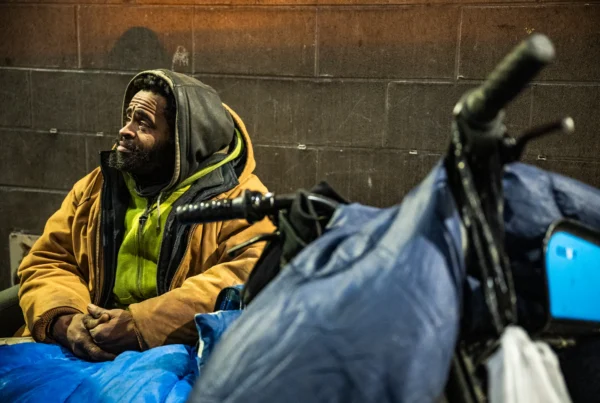By Matthew Messner
While many cities struggle with their relationship with house-sharing micro-rental companies, Chicago is looking on the bright side of the relatively new phenomenon. The city has announced that it will use $1 million raised from fees paid by homeowners who use home-sharing platforms, such as Airbnb, to help house 100 homeless families. The Housing Homeless Families program is a joint initiative with the Chicago Coalition for the Homeless, one of the city’s primary resources for information on and advocacy for the homeless population.
The program will focus on families in areas of the city with high violent crime rates, including Austin, Englewood, West Englewood, and Humboldt Park. Working with shelters that specialize in family services and the Chicago Public School system, the program will focus specifically on families with school-age children.
“The goal of this initiative is to help our most vulnerable families to establish stability so that their children can succeed,” said Department of Family and Support Services Commissioner Lisa Morrison Butler. “Thanks to collaboration with our partners at the Chicago Coalition for the Homeless, the city will deliver a coordinated response to ensure the needs of our most vulnerable families are met, and to prevent families on the cusp from experiencing homelessness.”
The Chicago Coalition for the Homeless recently released a report on the number of homeless people in the city. The count includes data on those who “double-up,” referring to people that do not have their own home but stay with friends or relatives. The report, which looks at 2015, found the city to have 82,000 homeless individuals, which includes nearly 10,000 homeless families. It is estimated that 87 percent of those who identified as homeless were “doubled-up.”
The money for the new program was raised through a $1 million investment by the Chicago Low Income Housing Trust Fund, with matching funds from a four percent surcharge leveled against homeowners using Airbnb and other home-sharing programs. That money will go towards providing housing vouchers to families and provide additional transition services. Those services will include helping families set up appointments, navigate the housing application process, and work with housing providers. The ultimate goal is to find permanent housing for the participating families.
“Around the city, children should be able to focus on their studies, and not where they are going to sleep at night,” said Mayor Rahm Emanuel at the announcement of the initiative. “Working with our partners at the Chicago Coalition for the Homeless on this new initiative, we will work to ensure that more families experiencing or on the verge of homelessness can find and maintain the housing and stability they need to thrive and provide for their children.”






